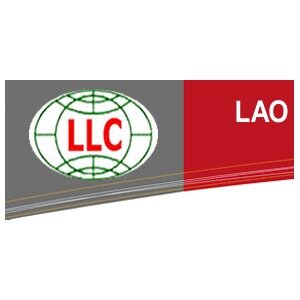Best Water Law Lawyers in Laos
Share your needs with us, get contacted by law firms.
Free. Takes 2 min.
Or refine your search by selecting a city:
List of the best lawyers in Laos
About Water Law in Laos
Water Law in Laos governs the use, management, and protection of water resources across the country. As a landlocked nation with numerous rivers, lakes, and reservoirs, effective management of water resources is crucial for agriculture, hydropower, industry, and daily life. The main legislative framework is the Law on Water and Water Resources (2017), which sets out the rights, obligations, and procedures related to water use and conservation. The law aims to promote sustainable use, prevent pollution, and resolve disputes related to water allocation and access.
Why You May Need a Lawyer
You may require legal assistance in Water Law if you are facing any of the following common situations:
- Obtaining permits or licenses for using river water for irrigation, industry, or hydropower
- Resolving disputes with neighbors or communities regarding water access or use
- Addressing legal challenges related to water pollution or contamination
- Defending your rights if your land or property is affected by water projects such as dams or irrigation systems
- Navigating government regulations for water use by foreign businesses or investors
- Understanding the impact of environmental protection laws on your water usage
- Participating in public consultations or hearings about water management projects
Local Laws Overview
Key aspects of Water Law in Laos include:
- Permits and Licenses: Individuals and organizations need government permission to use water for commercial or large-scale purposes. Small-scale domestic usage usually does not require a permit.
- Water Resource Protection: There are strict rules prohibiting pollution and contamination of water bodies. Environmental Impact Assessments (EIAs) may be required for large projects.
- Dispute Resolution: The law provides mechanisms for resolving conflicts between water users, including mediation and arbitration through local authorities or courts.
- Government Oversight: The Ministry of Natural Resources and Environment manages water resources and enforces laws. Local authorities may have responsibilities in their jurisdictions.
- Community Rights: Customary use of water is recognized, but must not conflict with national interests or neighbor rights.
- Foreign Investment: Foreign owned or funded water projects must comply with national laws and may be subject to additional review and approval processes.
Frequently Asked Questions
What permits are required to use river water for my farm or business?
For any commercial or large-scale use of water in Laos, you need to apply for a permit from the relevant government agency. Domestic and small-scale agricultural use may not require a permit but should not infringe on the rights of others.
How is water pollution regulated in Laos?
The law prohibits the release of pollutants into rivers, lakes, and groundwater. Companies and individuals must follow environmental standards and face strict penalties for violations, including fines and potential criminal liability.
What can I do if my neighbor’s water use is affecting my property?
You can first try resolving the dispute amicably. If an agreement cannot be reached, you may seek mediation through village or district authorities. As a last resort, you can file a claim in the local courts.
How does traditional or customary water use apply under the law?
Traditional rights are acknowledged, especially for village and community use, but these must be balanced with national laws and the rights of all affected parties.
Can foreign companies develop water projects in Laos?
Yes, but foreign entities must comply with Water Law and related regulations. Special permits, environmental assessments, and government approvals are typically required.
Who oversees water management and law enforcement?
The Ministry of Natural Resources and Environment is the primary government body responsible for water management. Provincial and local authorities may also have roles in enforcement and permit issuance.
What are the penalties for illegal water use or pollution?
Penalties may include fines, suspension of water use rights, compensation for damages, and in serious cases, criminal charges. Enforcement is carried out by local and national authorities.
Is compensation available if my land is affected by a government water project?
Yes, if your property or livelihood is adversely affected by an approved project, there are provisions for compensation. The amount and process are determined according to government regulations.
Do I need an Environmental Impact Assessment (EIA) for my water project?
Major projects, such as dams, hydropower facilities, or large-scale irrigation schemes, require an EIA before a permit will be issued. The EIA assesses potential impacts and guides mitigation measures.
Where can I get official information about Water Law in Laos?
Official information is available from government ministries, local administrative offices, and published legal documents. Consulting with a qualified lawyer can help interpret the laws and regulations as they apply to your specific situation.
Additional Resources
If you need further information about Water Law in Laos or require assistance, consider these resources:
- Ministry of Natural Resources and Environment - Responsible for oversight and licensing of water resources
- Department of Water Resources - Handles technical and regulatory aspects of water management
- Provincial and District Administrative Offices - First point of contact for local water disputes or permits
- Environmental Protection Fund - Provides support for projects and dispute resolution related to environmental issues, including water
- Legal Aid Centers or Registered Law Firms - Offer legal advice and representation
- Community and International Organizations (such as Mekong River Commission) - Guidance and advocacy on water management and rights
Next Steps
If you need legal assistance with a water law issue in Laos, follow these steps:
- Gather all relevant documents, such as permits, correspondence, and evidence related to your water use or dispute
- Contact your local administrative office or the Ministry of Natural Resources and Environment for initial guidance
- If your matter is complex or unresolved, consult with a licensed lawyer who has experience in Water Law and environmental regulation
- Discuss your situation, rights, and possible outcomes with your legal advisor to develop a strategy or response
- Participate in any required mediations, public hearings, or court proceedings as advised by your lawyer
Being proactive and seeking timely legal advice can help protect your rights and ensure compliance with Water Law in Laos.
Lawzana helps you find the best lawyers and law firms in Laos through a curated and pre-screened list of qualified legal professionals. Our platform offers rankings and detailed profiles of attorneys and law firms, allowing you to compare based on practice areas, including Water Law, experience, and client feedback.
Each profile includes a description of the firm's areas of practice, client reviews, team members and partners, year of establishment, spoken languages, office locations, contact information, social media presence, and any published articles or resources. Most firms on our platform speak English and are experienced in both local and international legal matters.
Get a quote from top-rated law firms in Laos — quickly, securely, and without unnecessary hassle.
Disclaimer:
The information provided on this page is for general informational purposes only and does not constitute legal advice. While we strive to ensure the accuracy and relevance of the content, legal information may change over time, and interpretations of the law can vary. You should always consult with a qualified legal professional for advice specific to your situation.
We disclaim all liability for actions taken or not taken based on the content of this page. If you believe any information is incorrect or outdated, please contact us, and we will review and update it where appropriate.
Browse water law law firms by city in Laos
Refine your search by selecting a city.












